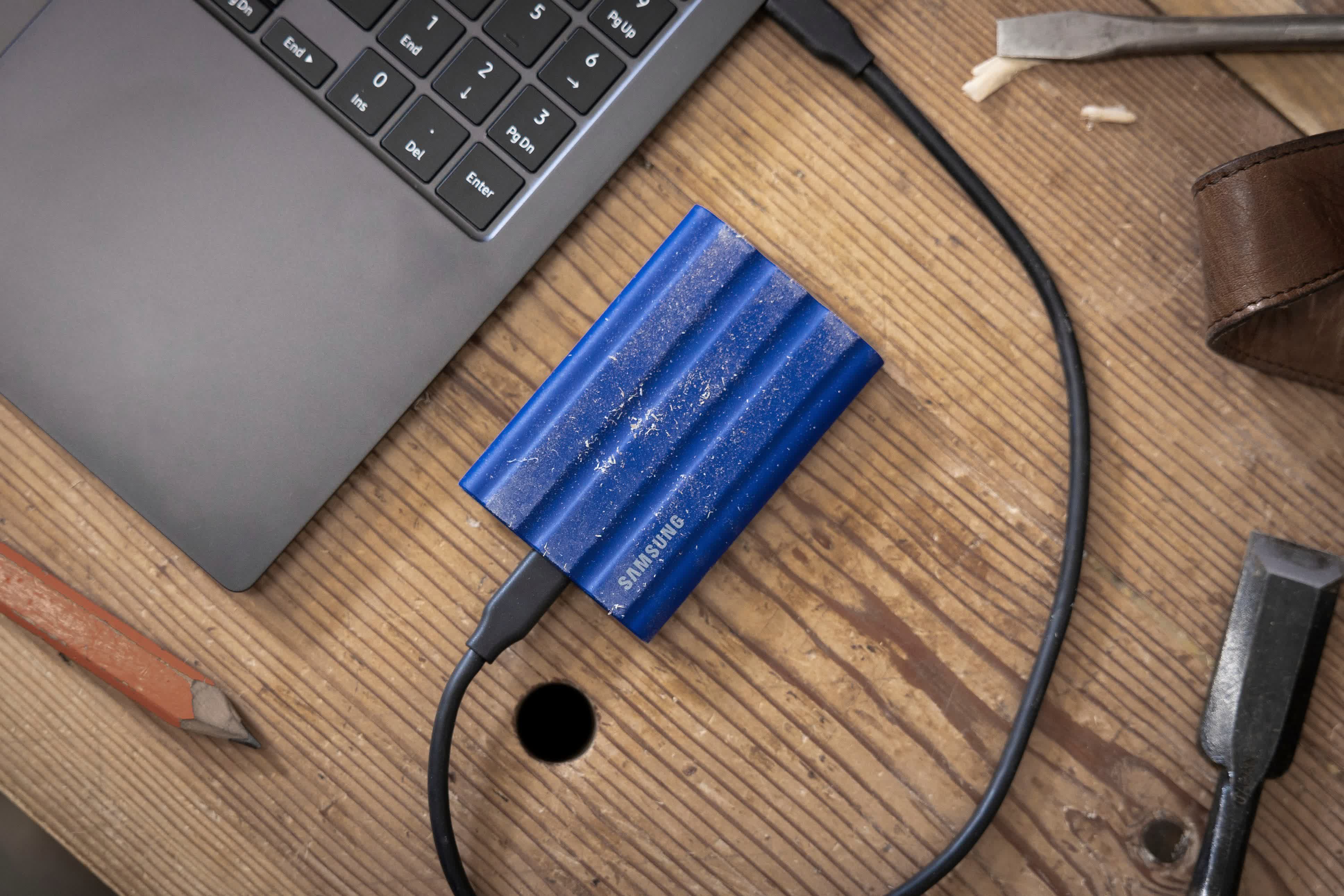Fast storage has become a commodity, and it is expected to become even bigger and faster in the years ahead. For new builds, NVMe drives have become the norm, offering prices comparable to SATA SSDs, but with file transfer speeds several times higher. For legacy systems, SATA SSDs are an excellent upgrade option, providing app load times comparable to those of NVMe drives. However, for storing a huge library of files, traditional hard drives continue to offer the best value.
Another consideration is whether you can install the drive inside your PC or laptop, or if you are willing to sacrifice some performance for the convenience of storage portability. Our best storage picks are broken down into six categories based on form factor and intended use, as detailed below.
- Best Desktop SSDs
- Best for Mobile Devices
- Best Portable SSDs
- Best Hard Drive
- Best External Hard Drive
- Best Home NAS
Best SSDs for Desktop PCs
Seagate FireCuda 530 | Samsung 990 Pro

Leveraging Micron's 176-layer TLC NAND, the Seagate FireCuda 530 offers sustained write speeds up to twice as fast as those of other popular PCIe 4.0 drives. In shorter transfers, the drive saturates the PCIe 4.0 interface with speeds up to about 7,000 MB/s. The Phison E18 controller is no longer the most efficient, but in terms of pure random performance it still puts up a fight. The drive's current firmware supports the DirectStorage API, which may become valuable once PC games start taking advantage of it.
Two things set the Seagate drive apart, even from drives that use the same components, such as the Kingston KC3000, Corsair MP600 Pro XT, and the current version of the Sabrent Rocket 4 Plus. The first is an endurance rating of 2,550 terabytes written (TBW) for the 2TB version, compared to about 1,500 in its competitors. The second is a 3-year data recovery service, in addition to the 5-year warranty – a worthy addition when the data on your drive is worth more to you than the drive itself.
The 2TB FireCuda 530 version writes faster than the smaller-capacity models, selling for $150, and the 1TB version is almost as fast for $80. The 4TB version is currently more expensive than two 2TB drives, but it's still a good option if you only have one M.2 slot.
PCIe 5.0 drives such as the Corsair MP700, Crucial T700 and Seagate's own FireCuda 540 promise better sequential performance, but due to cooling and flash density limitations, things are more complex. Modern SSDs are designed to use a portion of their free space as cache for writing at full speed. Depending on how much free space the drive has, PCIe 5.0 drives will fill this cache a few seconds faster. After that, writing speed will be similar to that of the FireCuda 530. Costing about twice per TB, it's simply not worth it.
Best for gamers: Samsung 990 Pro
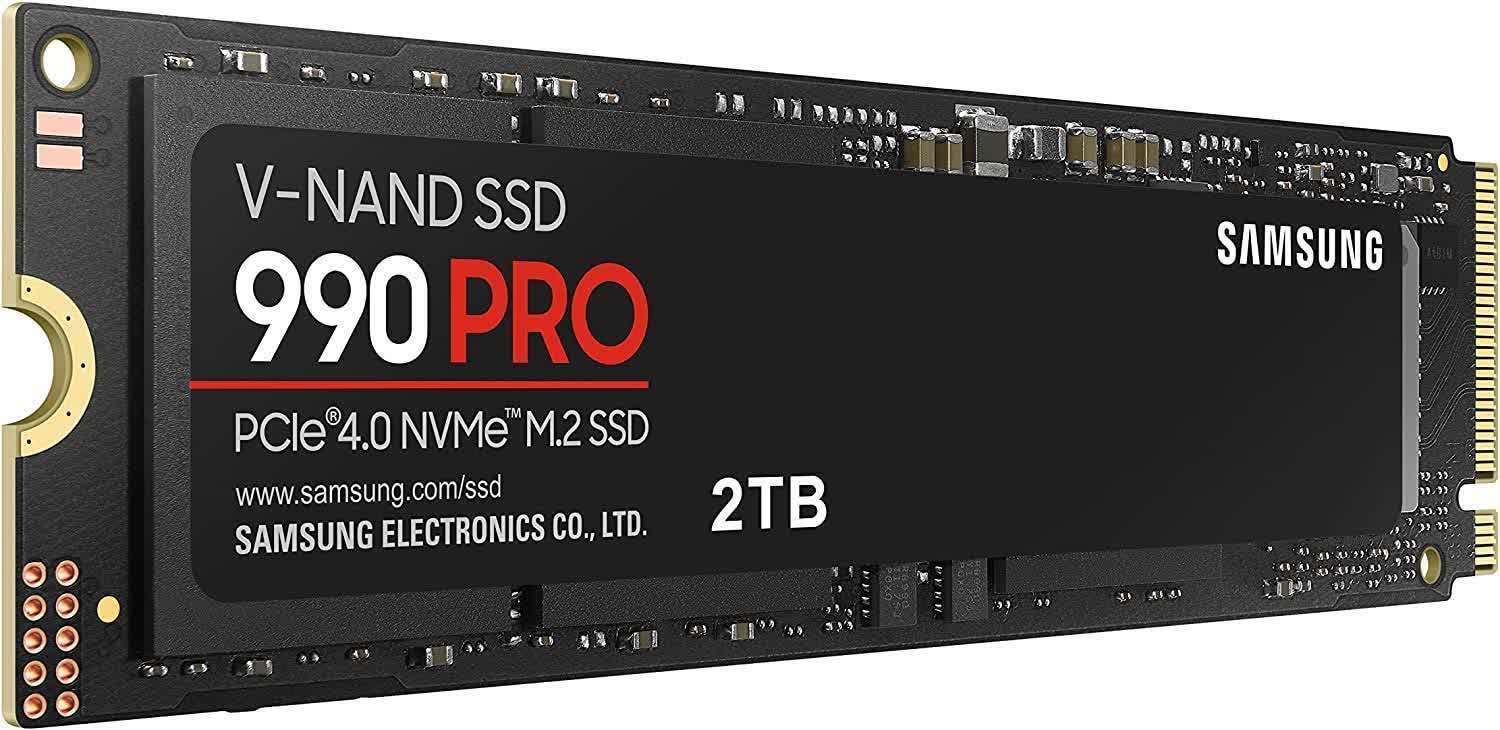
The Samsung 990 Pro offers record-breaking random read performance for an M.2 drive. Maximum write speeds have been raised to max out the PCIe interface from about 5GB/s in the older 980 Pro. In long writes it's actually slower than the previous model, but that's for a reason: the drive remains much cooler than the competition when used without a heatsink, making it a prime candidate for laptops. At $130 for 2TB, we can recommend it with no reservations.
The Crucial T500 is a solid alternative. It uses Micron's newer 232-layer flash and a smaller 4-channel controller for unprecedented efficiency for a DRAM-equipped SSD. Its main drawback is inconsistent performance in sustained writes. The 2TB version can be had for $120, or $125 with a heatsink. The 1TB version also provides great value at $57.
The Solidigm P44 Pro, previously known as the SK Hynix Platinum P41, performs similarly to the Samsung 990 Pro while being almost as efficient as the T500. It's normally more expensive, but at the time of writing it can be had for $130 for 2TB. If you prefer to save some money, the Crucial P5 Plus performs similarly to the older 980 Pro while being less efficient, but sells at $104 for 2TB.
A trusted SATA: An alternative for older PCs and laptops
The wallet-friendly Crucial MX500 is a proven affordable option if you want to upgrade an older desktop or laptop that only supports the SATA interface.
Currently, you can buy a 1TB Crucial drive for just $46, while 2TB ($98) and even 4TB ($199 with coupon) are also good options.
Best for Mobile Devices
WD Black SN770M
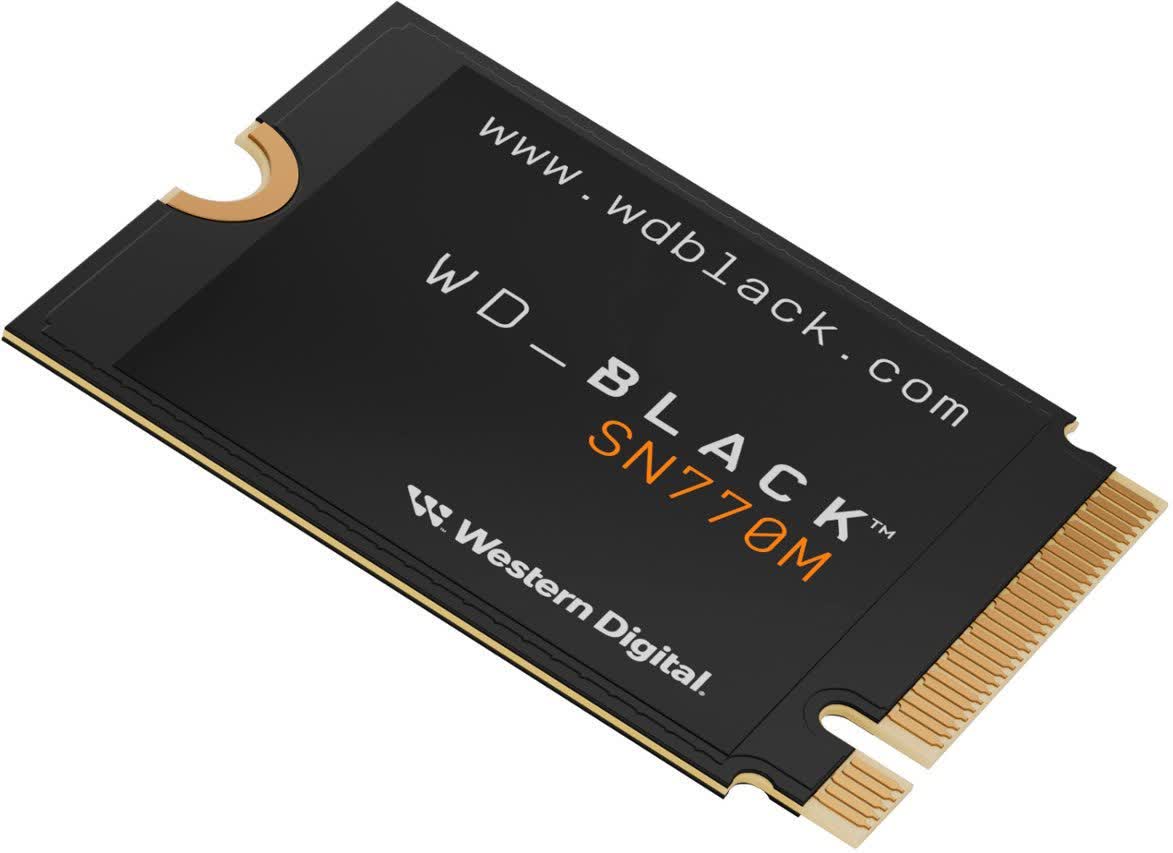
To expand the storage on devices like the Steam Deck, Asus ROG Ally, or Surface Pro tablet, your only option is a short 2230 M.2 drive. It's important to choose carefully, as several drives using the popular Phison E21T controller have shown a tendency to permanently delete data when operating at PCIe 4.0 speeds. Brands affected include Inland, Sabrent, and Corsair. Corsair has issued a firmware update to address this issue. However, drives from TeamGroup and Addlink, which use the same controller, might not be the safest options either.
The Western Digital Black SN770M is essentially identical to the full-length SN770, one of the best DRAM-less SSDs available. Unique to the 2TB version of the SN770M, among those with TLC flash, is its compatibility with the Steam Deck, achieved by placing all chips on one side of the PCB. This version is currently sold at Best Buy for $220. Alternatively, the Seagate FireCuda 520N is available on Amazon for $190, though it offers lower performance and lifespan compared to its own 1TB version.
If you can get by with 1TB, the FireCuda 520N is a worthy alternative to the WD SN770M for the same $110. However, if you don't care about performance in long writes, you can currently save a lot with the Solidigm P41 Plus for $46!
Best Portable SSDs
Samsung T7 Shield | Crucial X9 Pro
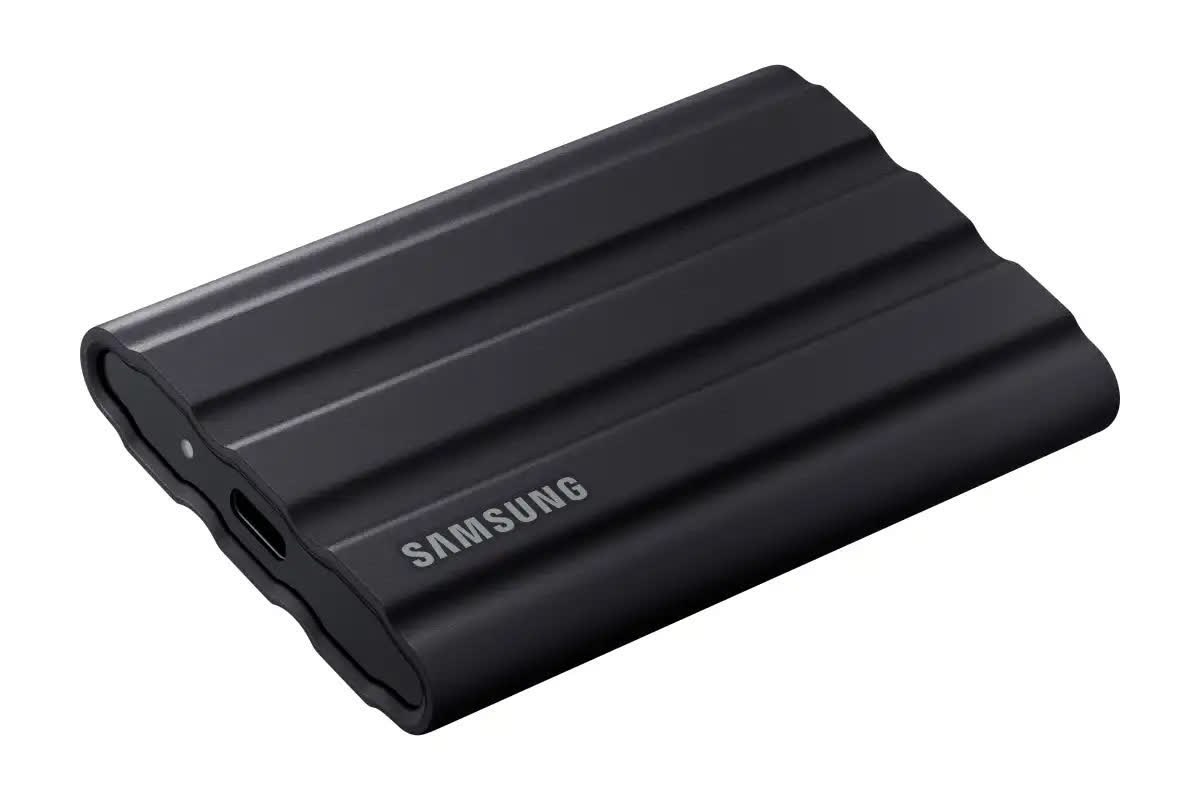
Having speedy storage on the go can be a lifesaver in some situations and a routine requirement in others. External drive enclosures will let you turn your internal drive into an external one (and vice versa in the future), offering features such as USB-3.2 ("Gen 2 x 2") or USB4 speeds, fingerprint readers and water/shock resistance.
Yet, if you want a new storage device, "all-in-one" external drives offer a good value these days.
The Samsung T7 Shield is a great example. Provided you have USB 3.1 (or "3.2 Gen 2") connector, you'll get up to 1,050 MB/s reads and 1,000 MB/s writes that remain surprisingly consistent in sustained workloads, unlike the original T7. It's rated for 3-meter drops, IP65 water and dust resistance. The 2TB and 4TB versions offer solid value, too, at $120 and $240 respectively, while the 1TB version goes for $90.
The Crucial X9 Pro is usually available for a similar price per TB, and it's the best choice for gamers thanks to its dedicated DRAM, especially when the drive houses hundreds of GBs. It's only rated for two-meter drop resistance and IP55 water and dust resistance, and may require you to use a USB-C to USB-A adapter, but if you don't mind these imperfections it's the best choice for you.
Need for speed
On-the-move professionals and enthusiasts looking to transfer hundreds of gigabytes of data regularly would fare off better with faster, costlier options like the Crucial X10 Pro, whose USB 3.2 (Gen 2 x 2) can reach up to 2,100 MB/s, or the Sandisk Thunderbolt-3 capable Professional Pro-G40 with blazingly fast 3,100 MB/s reads and 2,700 MB/s writes. The rest, however, will find the T7 Shield or the Crucial X9 Pro easily meeting their expectations, if not exceeding them.
Best Hard Drive
Seagate IronWolf
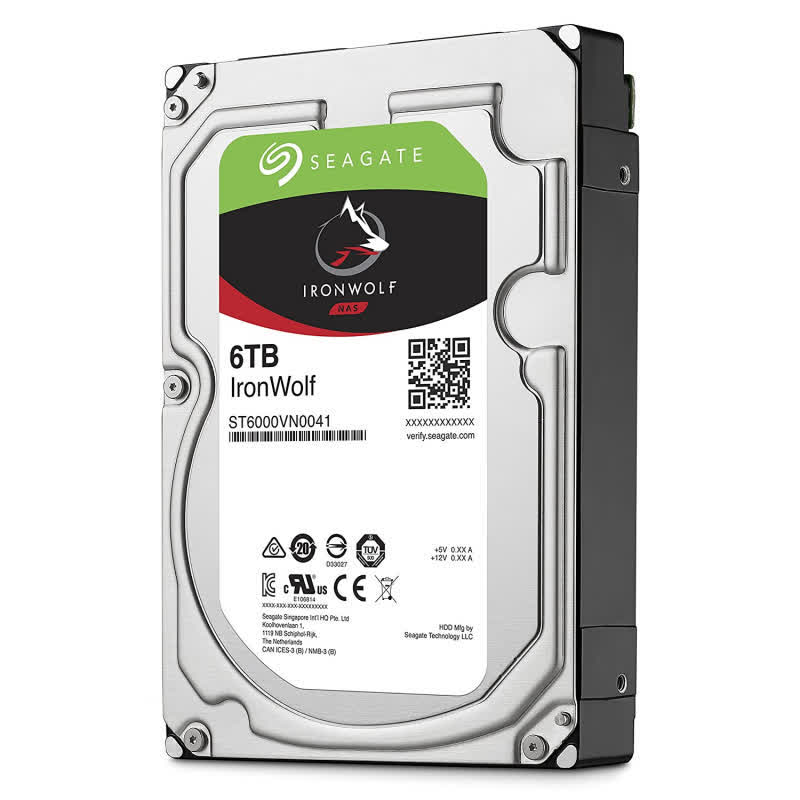
With SSDs reaching a new level of affordability, we no longer recommend using mechanical hard drives as primary system storage. However, for a secondary drive with substantial storage capacity, Seagate IronWolf NAS drives remain unbeatable.
Being NAS-optimized, the IronWolf series is not inexpensive for a disk drive, as it is designed for intensive workloads involving constant read/write operations over extended periods. These drives are more reliable, offer higher capacities, and perform well (for a hard drive). It's worth noting that higher-end series like the IronWolf Pro and Exos are intended for larger servers and focus more on vibration resistance than on performance.
The latest IronWolf HDDs are available in capacities of 1/2/3TB (5,900 RPM, 64MB cache), 6TB (5,600 RPM, 256MB cache), and 8/10/12TB (7,200 RPM, 256MB cache). The latter versions come with a five-year warranty and three years of data recovery services. Additionally, these drives use conventional magnetic recording (CMR) technology instead of shingled magnetic recording (SMR), avoiding the write performance penalty associated with SMR used in cheaper, denser disks.
Inevitably, this also means paying a small premium over budget drives. For example, an 8TB IronWolf drive will set you back around $170, while an identical capacity Barracuda can be had for $125.
A Worthy Alternative: WD Red Plus
WD NAS drives have been priced to compete with Seagate's IronWolf across their entire range of 1/2/3/4/6/8/10/12/14TB models. There are, however, minor spec differences between the two, including RPM speeds and cache size. Notably, the latest version of the Red Plus drives offer 512MB of cache in the 12TB and 14TB models. However, those still come with three years of warranty.
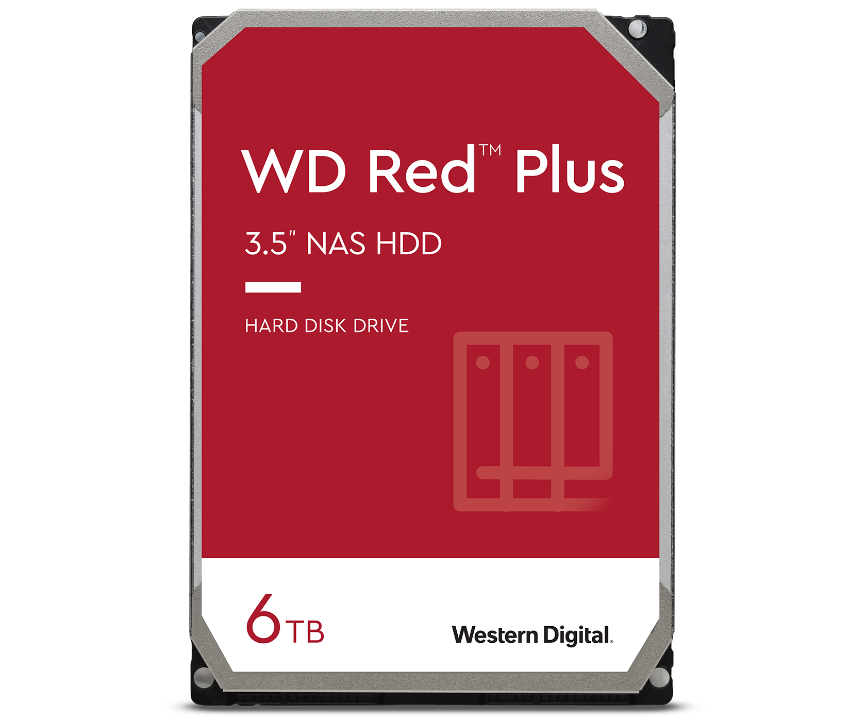
HDD Budget Option
If you simply want an inexpensive, barebones HDD, the Seagate Barracuda line has a variety of options to get you the most storage for your money. A 4TB model can be had for just $80, or you can double the space with the capacious $125 8TB version. The Barracuda is also available in 1TB, 2TB, 3TB, and 6TB variants.
The 2TB model of the Barracuda is the sweet spot in terms of speed, spinning at 7,200 RPM with 256MB of cache. The 1TB model spins at the same speed, but only includes 64MB of cache. The 3TB and above models slow down to 5400 RPM, but we think that's reasonable for the price. A larger cache is useful for storing frequently used files without needing to keep them on the slower disk.
Best External Hard Drive
WD My Book | WD My Passport Ultra
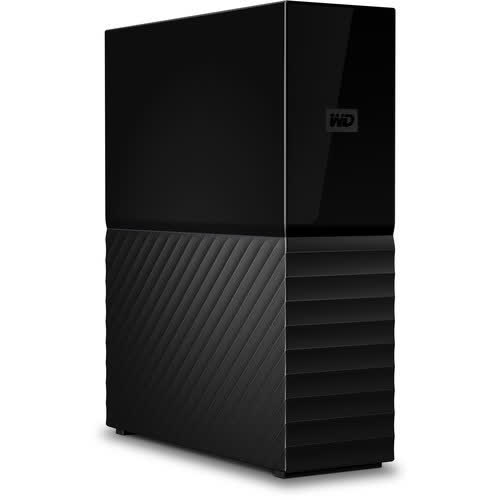
The cost and capacity advantages of mechanical drives become more appealing for storing data outside of your PC. Backups, media, and other significant files, often requiring terabytes of space, are ideally stored externally for safety. For the most reliable external drive, consider placing one of our recommended internal drives inside an external enclosure with a power connector. This approach prevents losing access to your data due to a broken external connector.
But if you prefer simplicity, WD's My Book stands out above the competition by offering lots of reliable storage space on the cheap. Models range between 4TB and 18TB. Currently, some of the better options are the 6TB model for $150, and the 16TB version for $300.
The My Book comes with the exFAT file system by default, alongside WD's Backup software for Windows/Mac PCs, and is also compatible with Apple's Time Machine. With a slow spinning disk and a USB 3.0 interface, this drive won't be winning any speed contests with mediocre 170-180MB/s sequential reads and writes, and even slower random transfer and I/O performance. Although these speeds are unacceptable on a boot drive, you are unlikely to be loading applications or games from the My Book, where its main purpose is offering cost-effective, reliable storage for your less frequently accessed data.
There are a few additional, but minor quirks with the My Book. It uses a Micro-B USB 3.0 connector (to USB-A) unlike USB-A/USB-C interfaces that have become more commonplace. The drive doesn't have an activity light and needs a separate (included) 12V power adapter to work, making it better suited for users with fixed workspaces. WD's My Book comes with password-protected 256-bit hardware encryption and a 3-year warranty, which is longer than its Seagate rival and overall makes it the best, inexpensive external storage currently available.
A compact alternative
For those looking to get portable storage on a budget, WD's My Passport Ultra hits the middle ground in terms of capacity, performance, portability, and price.
With a sleek, pocket-friendly design, the 5TB option currently offers the best value at $134, with 1TB, 2TB and 4TB options available for less. This model uses a modern USB-C port (USB-A adapter included) and features other niceties such as an activity light, onboard hardware encryption, useful software utilities, and a class-leading 3-year warranty.

Performance of the My Passport Ultra is nothing to write home about, but its ~130MB/s read and write speeds are on par with the competition and easier to accept considering the price, features, and daily usability.
Best Home NAS
Synology DS224+ | Synology DS923+
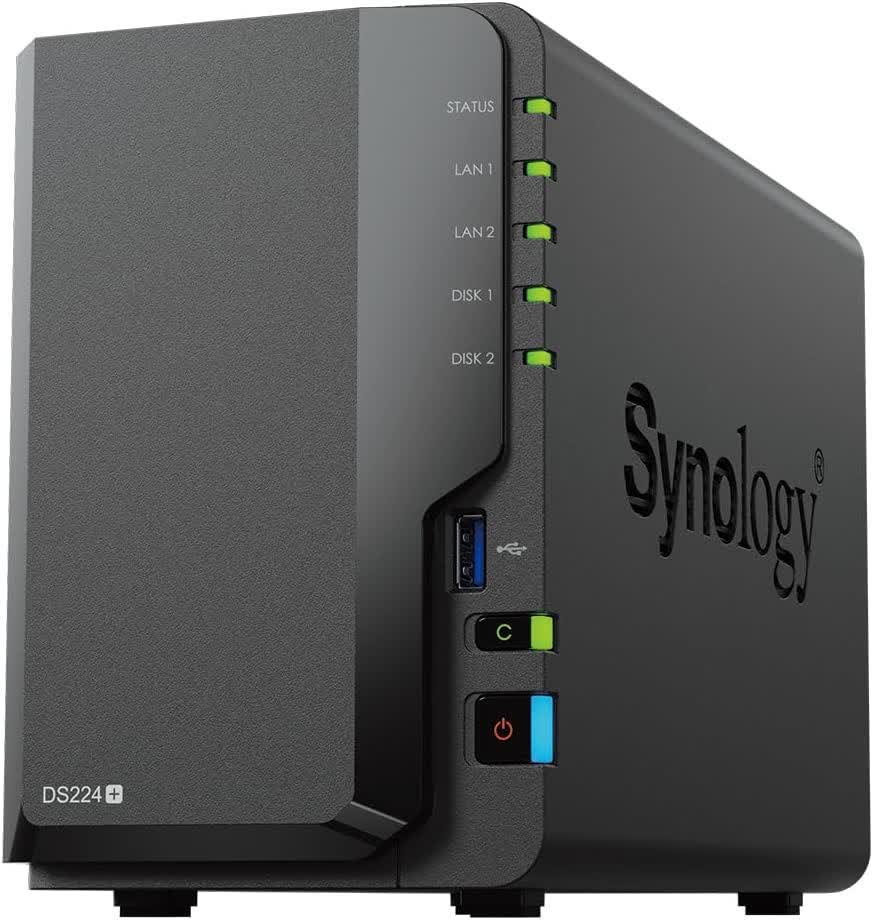
These days it's more affordable than ever to set up a home NAS for your file sharing and media needs. Synology's latest $300 DiskStation DS224+ makes the best case for itself in this category, offering the most value for entry-level NAS users.
This DS224+ comes with two empty drive bays, and supports up to 32TB of max storage for 3.5-inch SATA HDDs and 2.5-inch SATA SSDs. It's basically a refresh of the popular DS220+ with a quad-core Celeron J4125 chip and the same 2GB of DDR4 RAM (expandable up to 6GB), two 1Gb LAN ports with link aggregation and two USB 3.0 ("3.2 gen 1") ports. There's also support for 4K transcoding for high quality media streaming, while RAID types include SHR, Basic, JBOD, RAID 0 and RAID 1.
An M.2 slot is still lacking here, which means you'll need to shell out more for costlier alternatives (see below) if faster, NVMe-cached storage is a priority. There's also no support for an expansion unit to add more storage down the road.
Those are the only key weaknesses of the DS224+ given the price point it is targeting. However, Synology's class-leading software makes up for its hardware shortfalls and keeps it ahead of rivals in terms of the software experience, making the DS224+ our top pick in the Home NAS category.
Upgrade to 4 bays...
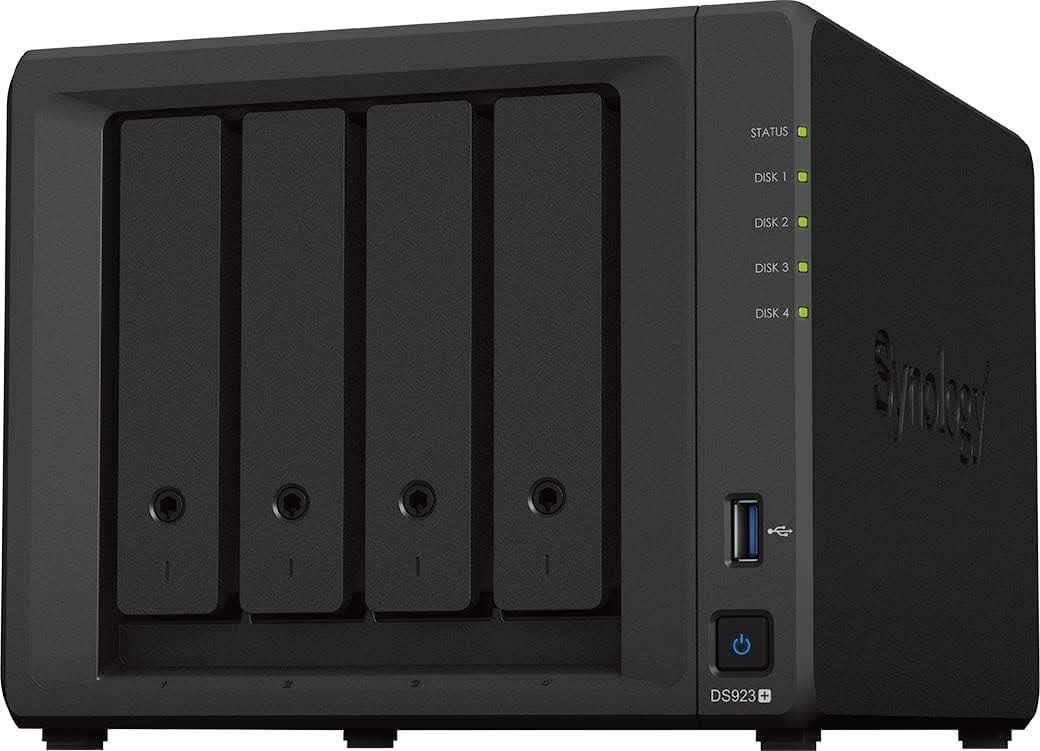
Synology's DS923+ stands out as a capable $600 4-bay Home NAS solution with support for up to 64TB of raw capacity, two NVME SSDs for either cache or storage, and a total of nine drives with a separate expansion unit. It's powered by a quad-thread AMD Ryzen R1600, and features 4GB DD4 RAM (expandable up to 32GB), support for PCIe 3.0 x 2 network cards, and even an eSATA port. With more drives, Raid 5, 6 and 10 become available.
If you want to connect your NAS directly to a TV, or just want to save yourself some work, the QNAP TS-464-8G is a great alternative with equivalent hardware to the DS923+, plus an HDMI port. For $890 you can get the device with four 4TB Seagate IronWolf drives, pre-configured in RAID-5 for a total of 12TB of storage and data immunity to the failure of any single drive. With WD Red Plus drives, it will be $20 less.
